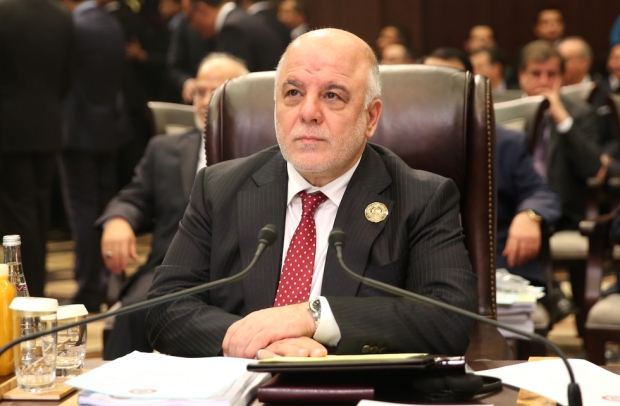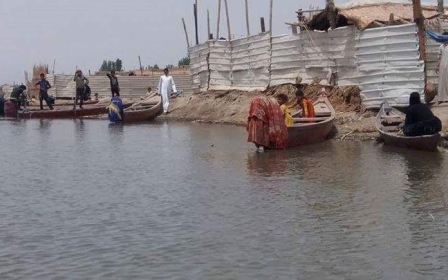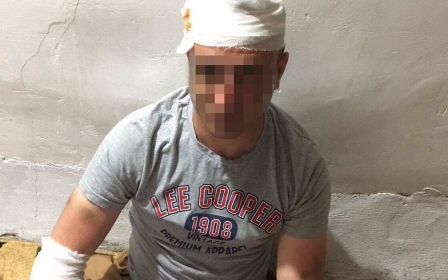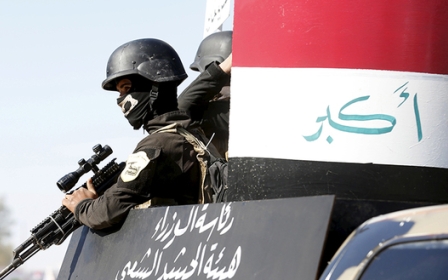US troops won't stay in Iraq after Islamic State is defeated, says PM
Iraqi Prime Minister Haider al-Abadi has been forced to deny that US combat troops will remain in his country following the final defeat of the Islamic State group.
The denial followed comments by US and Iraq officials in the Associated Press which said that US secretary of defence James Mattis was currently in talks with Abadi to maintain a "modest" US military presence in Mosul after the defeat of IS.
He said the troops would number "several thousand ... similar to what we have now, maybe a little more".
However, on Friday the office of the prime minister released a statement denying the report, emphasising that only military advisers would remain.
"The Iraqi government has plans and strategies to develop the capabilities of our security forces through training and arming to raise their readiness to face the challenges ahead," said the statement.
"It is open to all international expertise to meets the aspirations of Iraq to build military institutions and security apparatuses that enjoy full readiness to face any future security challenges, whether external or internal and in accordance with the requirements of Iraqi national sovereignty."
US presence criticised by lawmakers
The US currently has close to 7,000 troops in the country, assisting Iraqi forces in the fight against IS.
Many political and paramilitary figures in Iraq have been highly critical of the presence of US troops in the country.
'I think that the government of Iraq realizes their very complex fight, and they're going to need the assistance of the coalition even beyond Mosul'
- Lieutenant-General Stephen Townsend
Jafar al-Husseini, a representative from the Kataib Hezbollah militia - who are closely linked to Iran - said the army and paramilitaries were strong enough to defend Iraq themselves.
"Iraq's security forces and the Popular Mobilisation Forces [PMUs] have the ability to protect [Iraq's] internal roads and borders, so why is al-Abadi using American security partners?" al-Husseini asked, according to AP.
Influential Shia cleric Muqtada al-Sadr has long criticised the presence of US troops in Iraq, even going so far as to describe them as a potential "target" for his supporters.
Originally, the US anti-IS campaign, which was launched in 2014 after Mosul fell to the militant group, was primarily focused on providing air support and military expertise.
However, as the Iraqi army proved to be riddled with corruption and inexperience - and fearing the influence of Iranian-backed militias - the US has gradually increased its ground presence in the country.
In February, Lieutenant-General Stephen Townsend - the top US commander in the country Iraq - warned that the US military presence could continue even after the defeat of IS.
"I don't anticipate that we'll be asked to leave by the government of Iraq immediately after Mosul," said.
"I think that the government of Iraq realises their very complex fight, and they're going to need the assistance of the coalition even beyond Mosul."
Mosul speed up
Iraqi forces pushed further into the IS stronghold Mosul from the north on the second day of a new push to speed up the anti-IS campaign, commanders said on Friday.
IS tried to block the troops' northerly advance with suicide car bombs and sniper fire, Brigadier-General Walid Khalifa, deputy commander of the 9th brigade, told Reuters in Hulayla, west of Musherfa.
He said his troops had killed about 30 militants and destroyed five car bombs before they could be used against them.
US air support has proved vital for spotting suicide car bombs and for avoiding targets where civilians are trapped.
Brigadier-General Yahya Rasool, a spokesman for the joint operations command, told Reuters the militants "didn't have time to make barriers, the advance since yesterday has been good".
New MEE newsletter: Jerusalem Dispatch
Sign up to get the latest insights and analysis on Israel-Palestine, alongside Turkey Unpacked and other MEE newsletters
Middle East Eye delivers independent and unrivalled coverage and analysis of the Middle East, North Africa and beyond. To learn more about republishing this content and the associated fees, please fill out this form. More about MEE can be found here.





